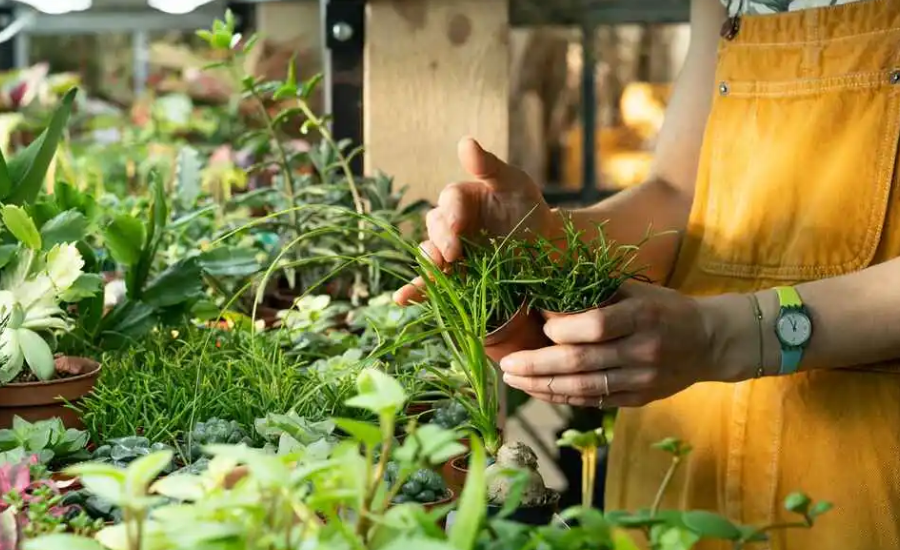The Benefits of Plant Nurseries: A Comprehensive Guide
The Benefits of Plant Nurseries: A Comprehensive Guide
Plant nurseries play a crucial role in horticulture, agriculture, and home gardening. These specialized establishments provide a controlled environment where plants, especially young ones, can grow and develop before being transplanted into their permanent locations. As more people turn to gardening for both pleasure and sustainability, understanding the benefits of plant nurseries becomes increasingly important. In this article, we’ll explore the numerous advantages of plant nurseries and how they contribute to healthier, more successful gardens.
1. High-Quality Plant Selection
One of the primary benefits of plant nurseries is the access to high-quality plants. Nurseries specialize in growing plants from seeds, cuttings, or grafting, ensuring that the plants are strong, healthy, and ready for transplantation. Here’s how they ensure quality:
- Controlled Environment: Nurseries offer controlled environments that protect young plants from harsh weather conditions, pests, and diseases, which are common challenges in open fields.
- Expert Care: Professional horticulturists and gardeners manage nurseries, providing plants with the optimal care needed for robust growth. This includes precise watering, fertilization, and pruning techniques.
- Disease-Free Plants: Many nurseries follow strict hygiene practices to prevent the spread of plant diseases. This reduces the risk of introducing pests or diseases into your garden, which can be devastating.
2. Wide Variety of Plants
Plant nurseries often offer a vast selection of plants, including rare and exotic species that may not be available elsewhere. This variety allows gardeners to:
- Access Specialty Plants: Whether you’re looking for a specific type of rose, an heirloom vegetable, or a rare tropical plant, nurseries are likely to have it or can order it for you.
- Experiment with New Plants: Gardeners can experiment with new and different plants each season, expanding their garden’s diversity and appeal.
- Seasonal Plants Availability: Nurseries typically offer plants that are in season, making it easier for gardeners to find plants that are ready to thrive in current weather conditions.
3. Expert Advice and Guidance
One of the most significant advantages of buying from a plant nursery is the expert advice that comes along with your purchase. Nursery staff are often knowledgeable horticulturists who can provide valuable insights on plant care, including:
- Planting Techniques: Understanding the best time and method for planting specific species.
- Soil and Fertilization Advice: Guidance on the right type of soil and fertilizers to use for optimal growth.
- Pest and Disease Management: Tips on how to prevent and treat common plant pests and diseases, ensuring your plants remain healthy and vibrant.
- Design and Landscaping Ideas: Many nurseries also offer landscaping services or can provide suggestions on how to arrange plants for aesthetic appeal and functionality.
4. Cost-Effective Gardening
Plant nurseries can also be cost-effective for gardeners. Purchasing young plants from a nursery is often more economical than starting from seeds, especially for those without the necessary equipment or expertise. Here’s why:
- Reduced Failure Rate: Plants from nurseries are more likely to survive after transplantation, reducing the cost of replacement.
- Bulk Buying Options: Nurseries often offer discounts for bulk purchases, making it more affordable to buy in larger quantities.
- Savings on Equipment: When purchasing established plants, gardeners can save on the cost of specialized equipment needed for starting plants from seeds or cuttings.
5. Supporting Local Economy
Buying plants from local nurseries supports your local economy. Local businesses, including plant nurseries, are integral to the community, providing jobs and contributing to the economic well-being of the area. Additionally, local nurseries often:
- Grow Native Plants: Native plants are more likely to thrive in your garden’s specific climate and soil conditions, and local nurseries are experts in growing and supplying these plants.
- Promote Sustainable Practices: Many local nurseries are committed to sustainable practices, such as using organic fertilizers and avoiding harmful pesticides.
- Provide a Personal Touch: Local nurseries are often family-owned businesses that offer a more personalized shopping experience compared to larger, chain garden centers.
6. Environmentally Friendly Practices
Many plant nurseries are at the forefront of promoting environmentally friendly practices. These include:
- Sustainable Growing Techniques: Nurseries often use sustainable methods such as rainwater harvesting, composting, and organic farming practices to grow plants.
- Reduction of Carbon Footprint: By growing and selling plants locally, nurseries help reduce the carbon footprint associated with transporting plants over long distances.
- Conservation of Water Resources: Advanced irrigation techniques used in nurseries help conserve water, an increasingly precious resource.
7. Community and Educational Resources
Plant nurseries often serve as community hubs for gardening enthusiasts. They may offer workshops, classes, and other educational resources that help people learn more about gardening, plant care, and environmental stewardship. These resources include:
- Gardening Workshops: Many nurseries offer classes on various topics, such as container gardening, composting, or creating pollinator-friendly gardens.
- Children’s Programs: Educational programs for children help foster a love for gardening and teach them about nature and sustainability.
- Networking Opportunities: Nurseries provide a space for gardeners to connect, share tips, and exchange plants and seeds, fostering a sense of community.
8. Plant Health and Longevity
Plants grown in nurseries generally enjoy better health and longer lifespans compared to those sourced from other places. This is because:
- Controlled Growth Conditions: Nurseries maintain optimal growing conditions, ensuring that plants develop strong root systems and are less stressed when transplanted.
- Stress-Free Transition: Plants from nurseries are better acclimatized and ready for the conditions they’ll face in your garden, leading to a smoother transition and better growth.
- Ongoing Support: Many nurseries offer after-purchase support, providing advice and assistance if your plant faces any issues after planting.
9. Convenience and Time-Saving
Plant nurseries offer convenience that is hard to match. For busy gardeners or those new to gardening, the time and effort saved by purchasing plants from a nursery can be significant:
- Ready-to-Plant Options: Nurseries sell plants that are ready to be transplanted, eliminating the time and effort needed to grow plants from seeds.
- One-Stop Shopping: Many nurseries carry not only plants but also gardening supplies, including soil, fertilizer, pots, and tools, making it easy to find everything you need in one place.
10. Enhancing Biodiversity
Plant nurseries contribute to biodiversity by offering a wide range of plant species, including rare and endangered varieties. This enhances the ecological health of your garden and supports local wildlife:
- Pollinator-Friendly Plants: Nurseries often stock plants that attract bees, butterflies, and other pollinators, which are essential for a healthy ecosystem.
- Diverse Plant Offerings: By providing a variety of plants, nurseries help gardeners create diverse habitats that support a wider range of wildlife, from insects to birds.
11. Customized Solutions
Plant nurseries can offer customized solutions to fit your specific gardening needs. Whether you have a small urban garden, a large estate, or a specialized project, nurseries can provide:
- Tailored Plant Recommendations: Based on your garden’s conditions and your personal preferences, nursery staff can recommend the best plants for your space.
- Custom Orders: If you need a specific plant that isn’t in stock, many nurseries can source it for you, ensuring you get exactly what you need.
- Specialty Services: Some nurseries offer additional services such as garden design, soil testing, and plant installation, providing a complete package for your gardening needs.
12. Contribution to Sustainability
By encouraging the use of native plants and sustainable gardening practices, nurseries play a vital role in promoting sustainability. Sustainable gardening practices contribute to:
- Soil Health: Plants that are well-suited to the local environment require fewer chemical inputs, helping maintain healthy, fertile soil.
- Water Conservation: Native plants often need less water than non-native species, reducing the demand on local water resources.
- Wildlife Support: Native plants are more likely to support local wildlife, including birds, insects, and mammals, contributing to a balanced ecosystem.
13. Conclusion: The Vital Role of Plant Nurseries
Plant nurseries are more than just a place to buy plants—they are essential resources for gardeners and the broader community. They offer high-quality plants, expert advice, and a wide variety of species, all while supporting the local economy and promoting sustainable practices. Whether you’re a novice gardener or an experienced horticulturist, the benefits of using plant nurseries are undeniable. By choosing to buy from a nursery, you’re not only enhancing your garden but also contributing to the health of the environment and the community.
In conclusion, plant nurseries are integral to successful gardening, offering a range of benefits that go beyond simply providing plants. Their role in fostering biodiversity, supporting local economies, and promoting sustainable practices makes them a vital part of any gardener’s journey. The next time you plan your garden, consider visiting a local plant nursery to experience these benefits firsthand.













Post Comment